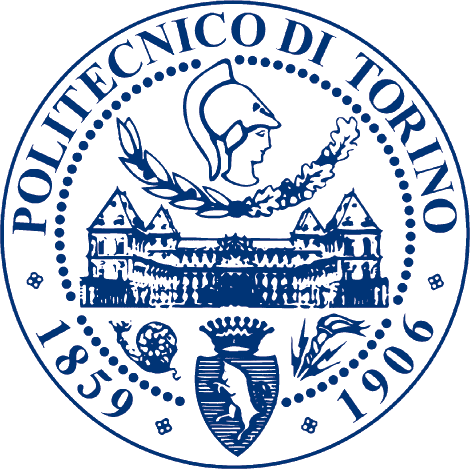Carmelo De Maria
- Università di Pisa
- https://www.unipi.it/
UBORA: E-infrastructure per il co-design di dispositivi medici con approccio open source
 Carmelo De Maria, PhD in Ingegneria dei materiali ed ingegnere biomedico, è un ricercatore di Bioingegneria presso il Dipartimento di Ingegneria dell'Informazione dell'Università di Pisa, affiliato al Centro di Ricerca E. Piaggio della stessa Università. E' guest professor in Bioingegneria presso l'Addis Ababa University (Etiopia), membro della Segreteria dell'African Biomedical Engineering Consortium, fondatore del Fablab Pisa. La sua attività di ricerca è focalizzata sulle applicazioni dell'additive manufacturing nel campo della Bioingegneria (oltre 60 pubblicazioni), ed è uno dei promotori del design open source dei dispositivi medici all'interno del progetto UBORA, in cui è coinvolto nel coordinamento tecnico.
Carmelo De Maria, PhD in Ingegneria dei materiali ed ingegnere biomedico, è un ricercatore di Bioingegneria presso il Dipartimento di Ingegneria dell'Informazione dell'Università di Pisa, affiliato al Centro di Ricerca E. Piaggio della stessa Università. E' guest professor in Bioingegneria presso l'Addis Ababa University (Etiopia), membro della Segreteria dell'African Biomedical Engineering Consortium, fondatore del Fablab Pisa. La sua attività di ricerca è focalizzata sulle applicazioni dell'additive manufacturing nel campo della Bioingegneria (oltre 60 pubblicazioni), ed è uno dei promotori del design open source dei dispositivi medici all'interno del progetto UBORA, in cui è coinvolto nel coordinamento tecnico.
 Dr Carmelo De Maria, PhD in Material Engineering MEng in BME, is Assistant Professor of Bioengineering at the Dpt. Information Engineering, and affiliated with the Research Center “E. Piaggio” of the University of Pisa. He is guest professor in bioengineering at Addis Ababa University (Ethiopia), member of the African Biomedical Engineering Consortium secretariat, founder of Fablab Pisa. His research interests are in the field of additive manufacturing applied to BME (over 60 publications), and he promotes open medical device design as within UBORA project, in which he is involved in the technical coordination
Dr Carmelo De Maria, PhD in Material Engineering MEng in BME, is Assistant Professor of Bioengineering at the Dpt. Information Engineering, and affiliated with the Research Center “E. Piaggio” of the University of Pisa. He is guest professor in bioengineering at Addis Ababa University (Ethiopia), member of the African Biomedical Engineering Consortium secretariat, founder of Fablab Pisa. His research interests are in the field of additive manufacturing applied to BME (over 60 publications), and he promotes open medical device design as within UBORA project, in which he is involved in the technical coordination
SESSIONE 5 - ICT: Sostenibilità e servizi smart
UBORA: E-INFRASTRUCTURE PER IL CO-DESIGN DI DISPOSITIVI MEDICI CON APPROCCIO OPEN SOURCE
 L’applicazione dei principi di progettazione open source e collaborativi allo sviluppo di dispositivi medici ha la potenzialità di aumentare l’accesso alle tecnologie sanitarie, grazie alla prevedibile riduzione dei costi di progettazione, gestione, manutenzione e riparazione legate al pieno accesso ai file di progetto.
La e-infrastructure UBORA è un ambiente di sviluppo di dispositivi medici open source che promuove il rispetto degli standard di qualità nella progettazione necessari a garantire l’efficacia e la sicurezza dei dispositivi, tutelando la salute dei pazienti e degli operatori sanitari, ispirandosi alla ISO 13485:2016 ed alla regolamentazione europea MDR 2017/745.
UBORA guida gli sviluppatori in un processo di design sistematico, dall’identificazione dei bisogni clinici, della classe di rischio e degli standard di riferimento del dispositivo, e fornisce una struttura di project management finalizzata alla compilazione del device dossier pre-produzione sotto la supervisione di esperti che assicurano che i criteri di sicurezza siano rispettati in tutte le fasi il processo di progettazione.
La e-infrastructure UBORA si colloca quindi nel solco dell’Agenda 2030 per lo Sviluppo Sostenibile, promuovendo e consolidando le iniziative di una comunità internazionale di progettisti, operatori sanitari, pazienti e policy-makers, volte a diminuire le disparità nell’accesso alle cure.
L’applicazione dei principi di progettazione open source e collaborativi allo sviluppo di dispositivi medici ha la potenzialità di aumentare l’accesso alle tecnologie sanitarie, grazie alla prevedibile riduzione dei costi di progettazione, gestione, manutenzione e riparazione legate al pieno accesso ai file di progetto.
La e-infrastructure UBORA è un ambiente di sviluppo di dispositivi medici open source che promuove il rispetto degli standard di qualità nella progettazione necessari a garantire l’efficacia e la sicurezza dei dispositivi, tutelando la salute dei pazienti e degli operatori sanitari, ispirandosi alla ISO 13485:2016 ed alla regolamentazione europea MDR 2017/745.
UBORA guida gli sviluppatori in un processo di design sistematico, dall’identificazione dei bisogni clinici, della classe di rischio e degli standard di riferimento del dispositivo, e fornisce una struttura di project management finalizzata alla compilazione del device dossier pre-produzione sotto la supervisione di esperti che assicurano che i criteri di sicurezza siano rispettati in tutte le fasi il processo di progettazione.
La e-infrastructure UBORA si colloca quindi nel solco dell’Agenda 2030 per lo Sviluppo Sostenibile, promuovendo e consolidando le iniziative di una comunità internazionale di progettisti, operatori sanitari, pazienti e policy-makers, volte a diminuire le disparità nell’accesso alle cure.
UBORA: THE E-INFRASTRUCTURE FOR CO-DESIGNING OPEN SOURCE MEDICAL DEVICES
 The development of medical devices with open source and collaborative design methodologies has the potential to increase the access to medical technologies, thanks to a feasible reduction of design, management, maintenance, and repairing costs linked to the open access device blueprints.
UBORA is an e-infrastructure for the co-design of open source medical devices, which promotes the compliance with internationally recognized quality standards and regulations for safety and efficacy of devices, taking the EN ISO 13485:2016 and the MDR 2017/745 as inspiration.
UBORA guides the user through a systematic design process, from the identification of clinical needs, of risks class and relevant standards for the device, and provides a project management tool, including a repository, finalized to the preparation of the pre-production device dossier. The entire process is supervised by expert mentors, which ensure that safety and efficacy criteria are fulfilled.
The UBORA e-infrastructure is thus in line with the 2030 Agenda for the Sustainable Development Goals, promoting and strengthening the initiatives of an international community of designers, healthcare providers and policy-makers, toward the reduction of inequalities in the access to medical devices
The development of medical devices with open source and collaborative design methodologies has the potential to increase the access to medical technologies, thanks to a feasible reduction of design, management, maintenance, and repairing costs linked to the open access device blueprints.
UBORA is an e-infrastructure for the co-design of open source medical devices, which promotes the compliance with internationally recognized quality standards and regulations for safety and efficacy of devices, taking the EN ISO 13485:2016 and the MDR 2017/745 as inspiration.
UBORA guides the user through a systematic design process, from the identification of clinical needs, of risks class and relevant standards for the device, and provides a project management tool, including a repository, finalized to the preparation of the pre-production device dossier. The entire process is supervised by expert mentors, which ensure that safety and efficacy criteria are fulfilled.
The UBORA e-infrastructure is thus in line with the 2030 Agenda for the Sustainable Development Goals, promoting and strengthening the initiatives of an international community of designers, healthcare providers and policy-makers, toward the reduction of inequalities in the access to medical devices












